|
|
|
|
During the lockdown, our household has held regular discussions about “having a big tidy up”. As a member of Hoarders Anonymous, I find the onset of spring, with all that implies, quite triggering. Thus far, I have managed to stave off the prospect of spending a weekend sorting out things to throw out, with the inescapable logic that, as the local tip is still closed, we have nowhere to put all the stuff earmarked for disposal. But it’s only a matter of time, and if you – like me – struggle with this sort of thing you could take a leaf out of the minimalists’ playbook. Apparently decluttering makes you happy and could even lead to a more sustainable lifestyle. As I sit here writing this surrounded by a top hat,
several dead laptops and defunct stereo equipment and a large stuffed Basil Brush (don’t ask) I can honestly say I couldn’t comment.
But declutter away if you think it will relieve the boredom of lockdown. Or you could read our expert’s fascinating study about boredom instead, which will help pass the time. Personally, given the sunshine forecast this weekend, the pressure will be on to get out into the garden and put right some of the havoc that winter has wrought on our lawn and flowerbeds. Now there’s a worthwhile use of time while the pubs are shut. If you live in a
built-up urban area, even the smallest green spaces can be havens for bees and other pollinators. And keep an eye out for
the burgeoning bird life, although you might not spot as many red kites or ravens as our Elizabethan ancestors in London did, when the birds of prey acted as unofficial street cleaners.
Or you could just settle back and have a browse through some of the fascinating stories we’ve featured this week, including why using dogs to guard livestock might not be such a good idea, how Roald Dahl became a passionate vaccination advocate and why so many people are identifying with Keats’ poetry during lockdown.
From our colleagues around the globe, a new advance in the search for substances to replace fat in food, how the ancient Greeks dealt with fake news and why so many black Americans are reluctant to have a COVID jab.
|
Jonathan Este
Associate Editor, International Affairs Editor
|

|
|
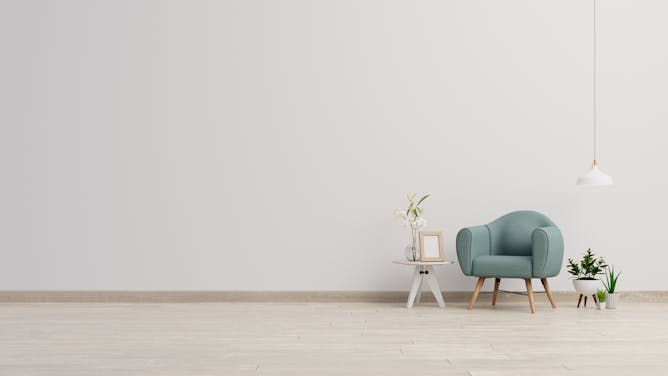
NaksomritStudio / shutterstock
Amber Martin-Woodhead, Coventry University
Some are motivated by sustainability, others just hate accumulating stuff.
|
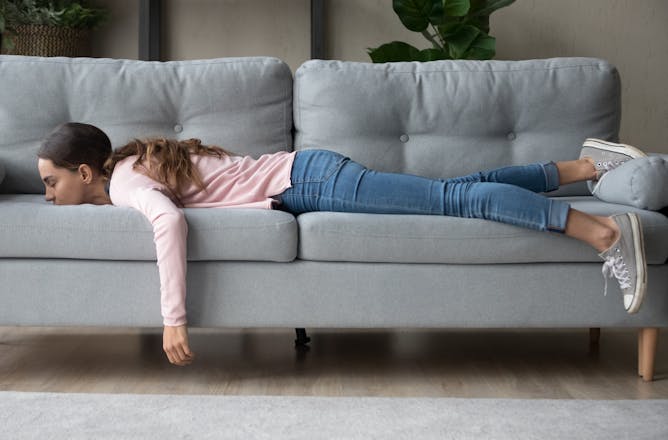
Boredom can be good and bad.
Shutterstock/fizkes
Wijnand Van Tilburg, University of Essex
Boredom can make you angry, impulsive or find meaning in life.
|
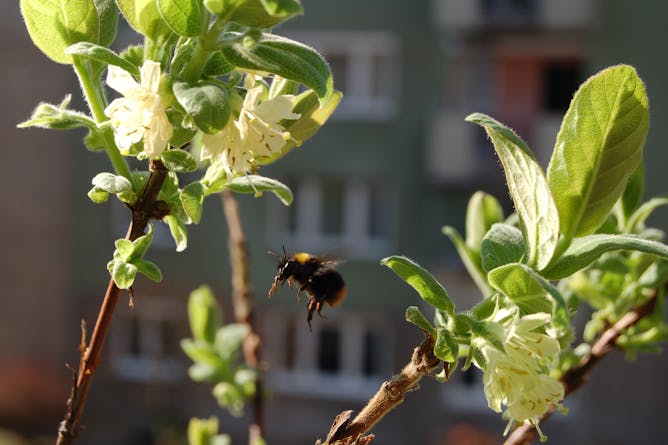
Maljalen/Shutterstock
Nicholas Tew, University of Bristol; Jane Memmott, University of Bristol; Katherine Baldock, Northumbria University, Newcastle
New research suggests that residential gardens are the source of 85% of the nectar produced in towns and cities.
|
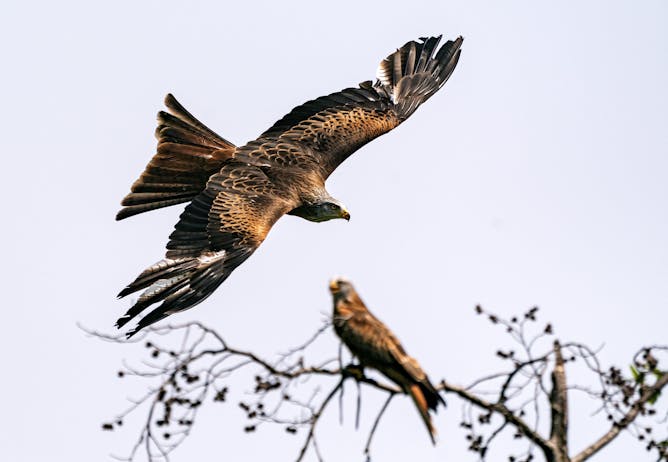
EPA-EFE/Ronald Witte
Lee Raye, The Open University
Plague-wary Londoners tolerated mischievous red kites and ravens for their services to the city's sanitation.
|
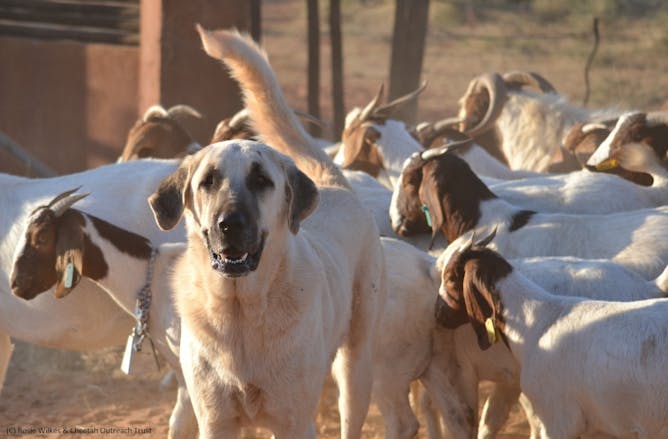
An Anatolian Shepherd Dog protecting goats in South Africa.
Rosie Wilkes/Cheetah Outreach Trust
Bethany Smith, Nottingham Trent University; Katherine Whitehouse-Tedd, Nottingham Trent University
Livestock guarding dogs are considered a non-lethal method for farmers to control wild predators.
|
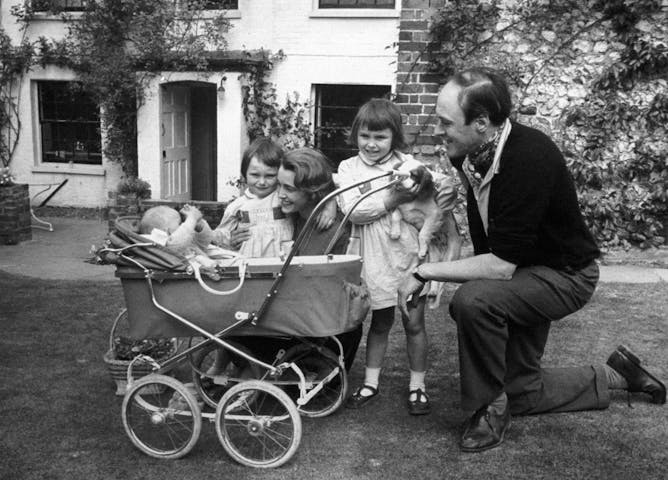
Roald Dahl with his wife Patricia Neal and children Olivia (right) Tessa, and Theo (in pram).
PA Images/Alamy Stock Photo
Tom Solomon, University of Liverpool
Roald Dahl's daughter Olivia died of measles aged seven.
|
|
|
-
Richard Marggraf-Turley, Aberystwyth University
The doctor-turned-poet died 200 years ago.
-
Joyce Agyei-Amponsah, Biotechnology and Nuclear Agriculture Research Institute
Fat replacers have the potential to mitigate the global obesity challenge.
-
Esther Jones, Clark University
Though COVID-19 has killed Black Americans at nearly twice the rate as white Americans, Black people are the least likely racial group to say they're eager to get the vaccine.
-
Peter S. Field, University of Canterbury
Trump might have popularised the idea of fake news, but 26 centuries ago Plato and Thucydides were convinced intellectuals and poets were duping the people and undermining democracy.
|
|
| |
Featured events
|

|
Online, Birmingham, Warwickshire, b15 2tt, United Kingdom of Great Britain and Northern Ireland — University of Birmingham
|

|
Sustainable Places Research Institute, Cardiff University, Cardiff, Cardiff [Caerdydd GB-CRD], CF10 3BA, United Kingdom of Great Britain and Northern Ireland — Cardiff University
|

|
University of Birmingham Facebook (Live), Birmingham, Birmingham, B152TT, United Kingdom of Great Britain and Northern Ireland — University of Birmingham
|

|
East Road, Cambridge, Cambridgeshire, CB11PT, United Kingdom of Great Britain and Northern Ireland — Anglia Ruskin University
|
|
|
|
| |
| |
| |
| |
| |
|
|
|
|
|
|
|